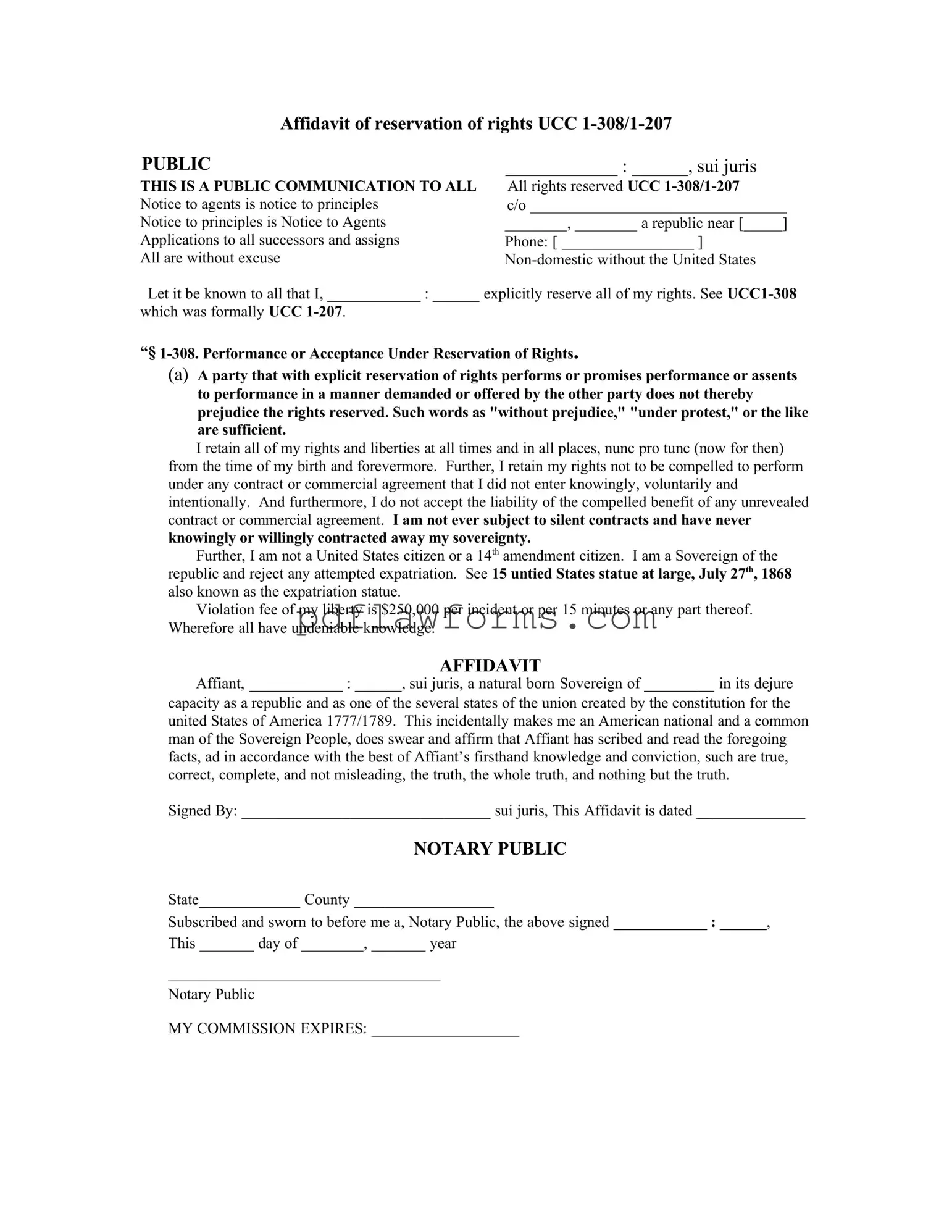Fill Your Ucc 1 308 Template
The UCC 1-308 form, also known as the Affidavit of Reservation of Rights, serves as a public declaration of an individual's intention to reserve their rights under the Uniform Commercial Code. By completing this form, a person explicitly states that they do not waive any rights or obligations, particularly in relation to contracts or agreements they did not knowingly enter into. Understanding the implications of this form can be crucial for individuals seeking to protect their legal rights.
Take the first step in safeguarding your rights by filling out the UCC 1-308 form. Click the button below to get started!
Make My Document Online

Fill Your Ucc 1 308 Template
Make My Document Online
You’re halfway through — finish the form
Edit and complete Ucc 1 308 online, then download your file.
Make My Document Online
or
⇩ Ucc 1 308 PDF
